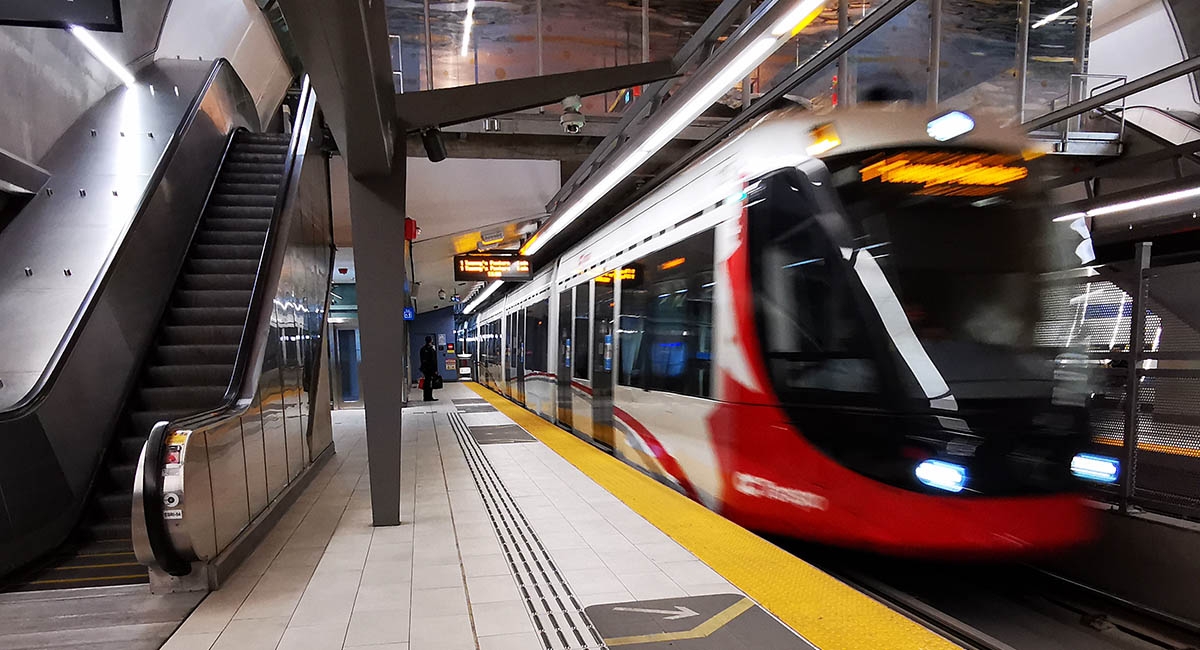
Local transit union scolds Rideau Transit Group O-Train failures
Generally, when the city of Ottawa does a community infrastructure project, it works.
The city’s public activities and recreational facilities are pretty good; the outdoor skating rinks and arenas, the outdoor pools and splash pads, the indoor recreational facilities are top-notch, and the city’s parks and trails are also great. The common denominator here is that the city has control over the maintenance.
OC Transpo was in the same category until a couple of years ago. With over 900 buses in its fleet and five industrial-sized garages to maintain them all, Ottawa’s bus system, although it had its problems, was efficient for a city of a million people.
Having lived in the York Region of the GTA and commuted to university in downtown Toronto, the lack of designated bus lanes left public transportation users like me stuck in traffic along with other car-driving commuters and the high monthly cost of Toronto’s non-integrated commuter transportation system could have be redirected to cover the lease payments of a Mercedes. In comparison, Ottawa’s transit system was a dream.
The Confederation Line of the LRT has changed any perception that OC Transpo provides decent service. The P3 (public-private partnership) maintenance and building contract for the LRT that is shared between the city and the Rideau Transit Group (RTG) is the singular most significant problem. According to the city’s webpage dedicated to listing P3 contracts, two of the “key benefits” of P3s for the city are: “creates high-quality infrastructure” and “Increases efficiency and effectiveness”. The Rideau Transit Group has failed dramatically at doing either.
If the Covid-19 pandemic had not led to a surge of citizens working from home, Ottawa would have suffered a full-blown transit disaster.
The citizens of Ottawa deserve “high-quality infrastructure” for the price they are paying
The train derailment on the Confederation Line is just the latest in a series of quality assurance and safety failures. As early as March 2019, internal reports showed that the trains couldn’t handle Ottawa’s cold climate. The report was released before the line even opened. Jammed doors also repeatedly held up commuters creating massive backlogs. According to a press release by the Amalgamated Transit Union, the city is spending between $4 million to $5 million a month on maintenance for the O-Train, provided through Rideau Transit Maintenance (RTM), a subsidiary of RTG. Nevertheless, a transportation safety board report blamed “incomplete maintenance” for the derailment that has kept the system shutdown since September 19, 2021.
ATU 279, the Ottawa branch of the ATU union representing 3000 transit workers, has voiced frustration calling on the city to take the maintenance of the system away from RTM and RTG and to hand over any future tasks to the city and OC Transpo. The Union says that the P3 program puts profits over commuters safety.
ATU 279 is right; the P3 program is not serving the citizens of Ottawa. The P3 has only been profitable for the Rideau Transit Group at the expense of every citizen who relies on public transportation. Two years since the opening of the O-Train, viewing the P3 project agreement proves to be complicated and murky. Much of the document is redacted or deleted. Most disturbingly, the key individual’s section, Schedule 9, is not listed anymore. If citizens of Ottawa wish to call for accountability to those responsible for the system’s failures, they cannot do so short of going to council or the mayors’ office.
ABOVE: The O-Train Confederation Line documents from the City of Ottawa website are mostly all redacted and the "Key Individuals" page is currently blank.
The city shouldn’t be redacting documents to hide information from Ottawa residents—the transit system is paid for from the pockets of the citizens. If transit committee chair Allan Hubley and Mayor Jim Watson are serious about fixing transit in the city and restoring OC Transpo’s reputation they should bring the O-Train under a public maintenance system with checks and balances and with better oversight.
Ottawa’s fleet of buses operate under a similar system, and it has proven to be effective. Call it bad policy or a lack of business experience from city councillors but it is terrible to spend millions of dollars a month on maintaining trains that don’t work due to shoddy maintenance and do nothing about it. Council needs to put RTG on the next train out of town.
To continue to pay RTG/RTM for the system's upkeep is comparable to corruption. RTG should refund the city taxpayers for the maintenance costs since the opening of the Confederations Line in 2019.
Renewed call for a judicial inquiry
Council voted against a judicial inquiry into the Confederation Line on October 13, 2021 and instead asked the auditor general to investigate the issue—a process that will occur behind closed doors. Councillor Catherine McKenney has renewed calls for the province to launch two-part a judicial inquiry which Ottawa City Council will be voting on November 10, 2021.
With the city redacting documents and a train derailment caused by faulty work, this is no longer a policy issue; it is a health and safety concern.









